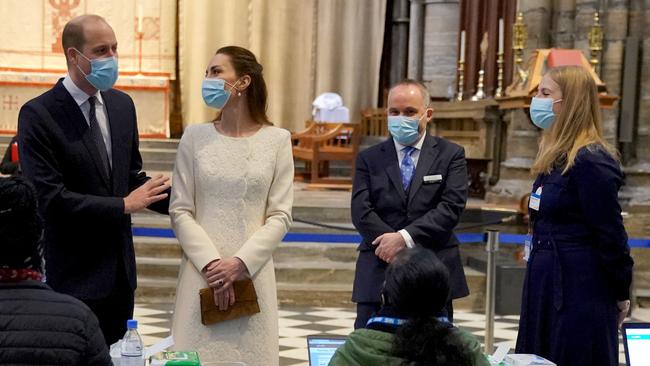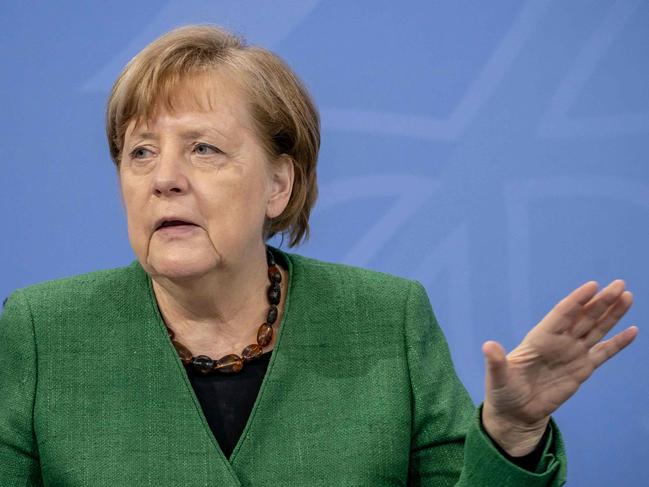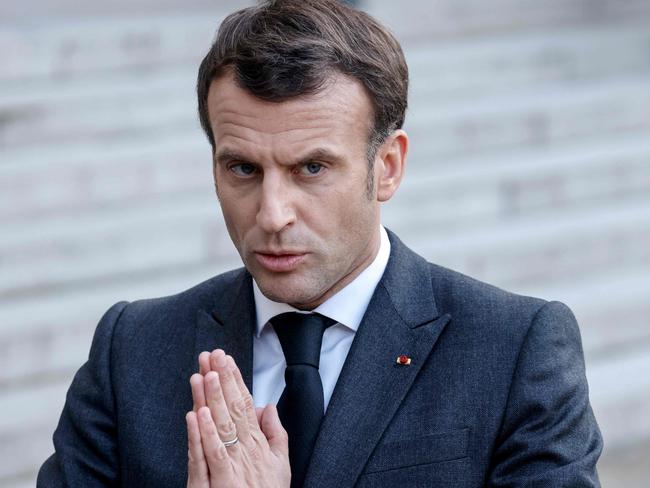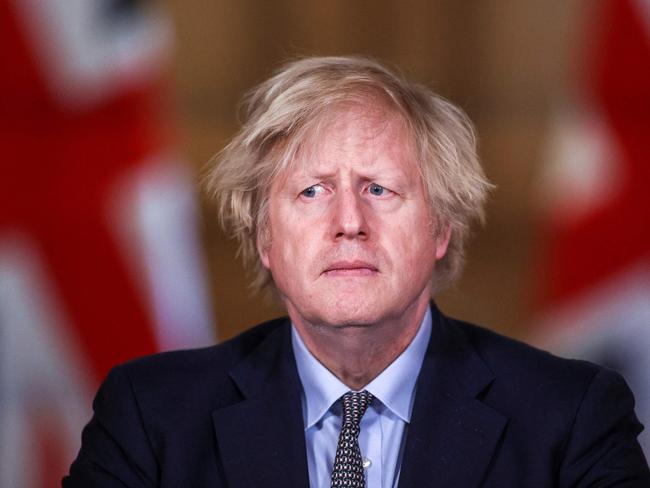‘We’ll be dealing with fallout as long as I live’: Boris Johnson marks one-year anniversary of UK lockdown
As UK marks one-year anniversary of first COVID-19 lockdown, Boris Johnson calls on Europe to step back from vaccine blockade.

It has been a year since the United Kingdom was stunned and shut down as an unthinkable concept spread across the free world: a lockdown.
And as the bleak anniversary is marked by the British prime minister Boris Johnson, 56, declaring that the government will be dealing with the fallout from coronavirus for “as long as I live”, neighbours on the continent are tightening their restrictions yet again, fearing a third wave amid a sluggish vaccination program.
Tomorrow, EU leaders will decide whether to carry out the threat of European Commission president Ursula von der Leyen and take over production of vaccines made across Europe, blocking exports to any non EU countries, including Britain.
Mr Johnson said Britons “don’t believe in blockades of any kind of vaccines or vaccine materials” and he was encouraged by recent European responses, inferring that the Europeans may pull back from such a drastic step.
Today, the anniversary of the first lockdown, is an opportunity to reflect on the past year – one of the most difficult in our country’s history. pic.twitter.com/Y7yt8OoRMW
— Boris Johnson (@BorisJohnson) March 23, 2021
Pressure is building on European leaders to compensate for their late and inadequate orders of vaccines, and their inexplicable delay of using millions of AstraZeneca vaccine they already have in storage.
Overnight (AEDT), German chancellor Angela Merkel ruled there would be a five-day shutdown of the entire country — including food shops — over Easter to try to break the chain of rising infections. In both Germany and France, about 12 per cent of the population has had one vaccine jab.
“We haven’t been able to defeat the virus yet. It doesn’t let up,” Mrs Merkel said following a tense and long meeting with regional leaders.
“We are now seeing the more dangerous mutations more and more because of the spread of the more contagious British variant. The number of cases is increasing exponentially, the intensive care beds are filling up again, and now more people of middle and younger age are also experiencing difficult courses.”
She said that travel should be banned for all of this year. But as is the case across the northern hemisphere, the public is tired of lurching from one coronavirus crisis to another, with different rules that sometimes don’t make any sense.

German church leaders and opposition parties lashed out, having not been consulted that Easter services were to be cancelled.
“It is a shocking failure of government that after a year the slogan #WeStayAtHome is still the only answer to the pandemic,” said the Free Democrats leader, Christian Lindner.
Mrs Merkel said on Wednesday that over Easter, Germans would be allowed to meet one other household — a luxury most of Britain has not enjoyed at any time for more than four months. Indeed, across Britain, most regions have been under some sort of restrictions all year and except for a brief period during the northern hemisphere summer when six people could gather, social interactions have been banned.
In France, where hospitalisations are increasing, there are tighter “lockdown light” measures — limiting indoor gatherings while ramping up the vaccination rate by repurposing 35 football stadiums — are being considered.

“We want to put the brakes on the virus without locking ourselves away, without being confined,” said president Emmanuel Macron, who faces an election next year.
While Germans and French can currently get their hair cut, Britons are bunkered at home in the strict stay at home order, their sheepdog-like locks only under control with beanies or makeshift kitchen shears.
Mr Johnson is under increasing pressure to capitalise on the one project the country has succeeded at in this pandemic: the efficient distribution of vaccines. Upwards of 28 million people, more than half the adult population, have received their first inoculation.
The success has prompted Tory backbenchers to call for Mr Johnson to fast-track the easing of restrictions, with deaths attributed to coronavirus plummeting.

But as the UK death toll attributed to the virus nears 150,000, the worst in Europe, Mr Johnson has been cautious about reopening the country, fearing escalations of infection through more social mingling and the introduction of a third wave from Europe.
Schoolchildren who have lost more than five months of education only went back on March 8. Next Monday, two households will be able to meet up outside and from April 12, and shops can re-open. It is not until June 21 that it is planned that people can meet up socially.
“For month after month, our collective fight against coronavirus was like fighting in the dark against a callous and invisible enemy until science helped us to turn the lights on and gain the upper hand,” Mr Johnson said.
The anniversary and the deaths that the pandemic has wreaked upon the country were to be acknowledged with a sunset vigil as people stood outside their homes with a candle or torch.




To join the conversation, please log in. Don't have an account? Register
Join the conversation, you are commenting as Logout